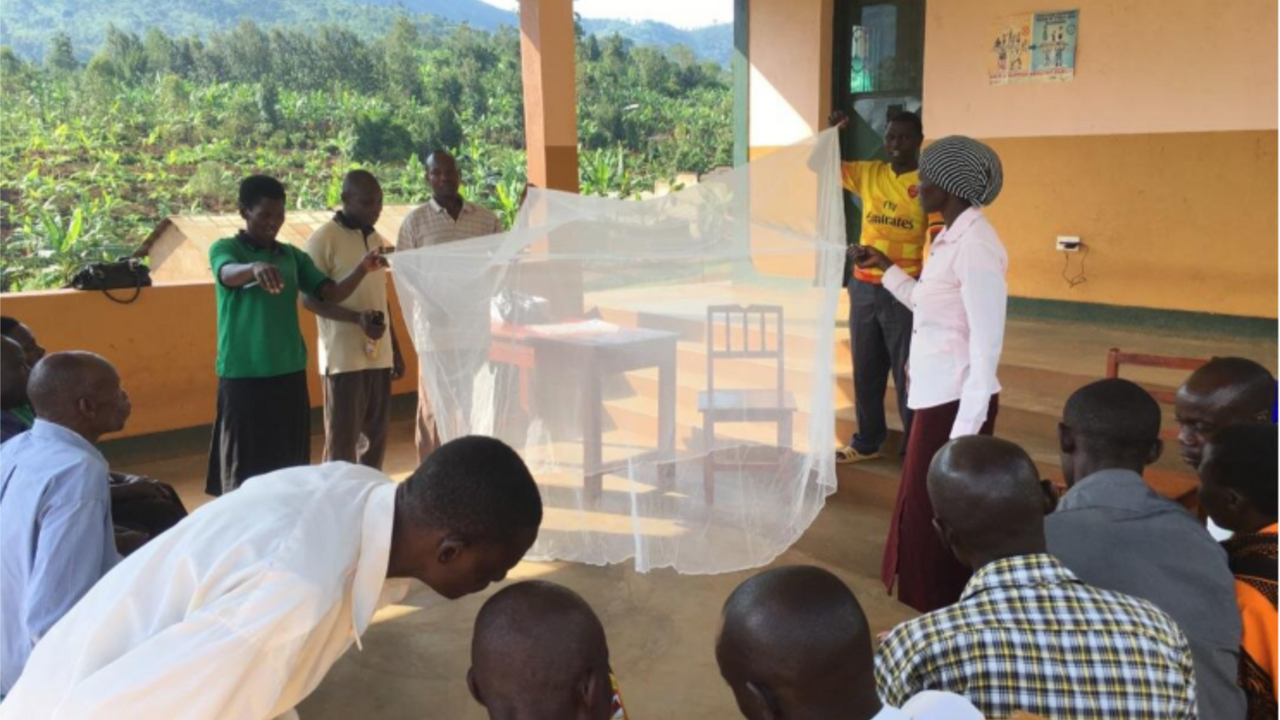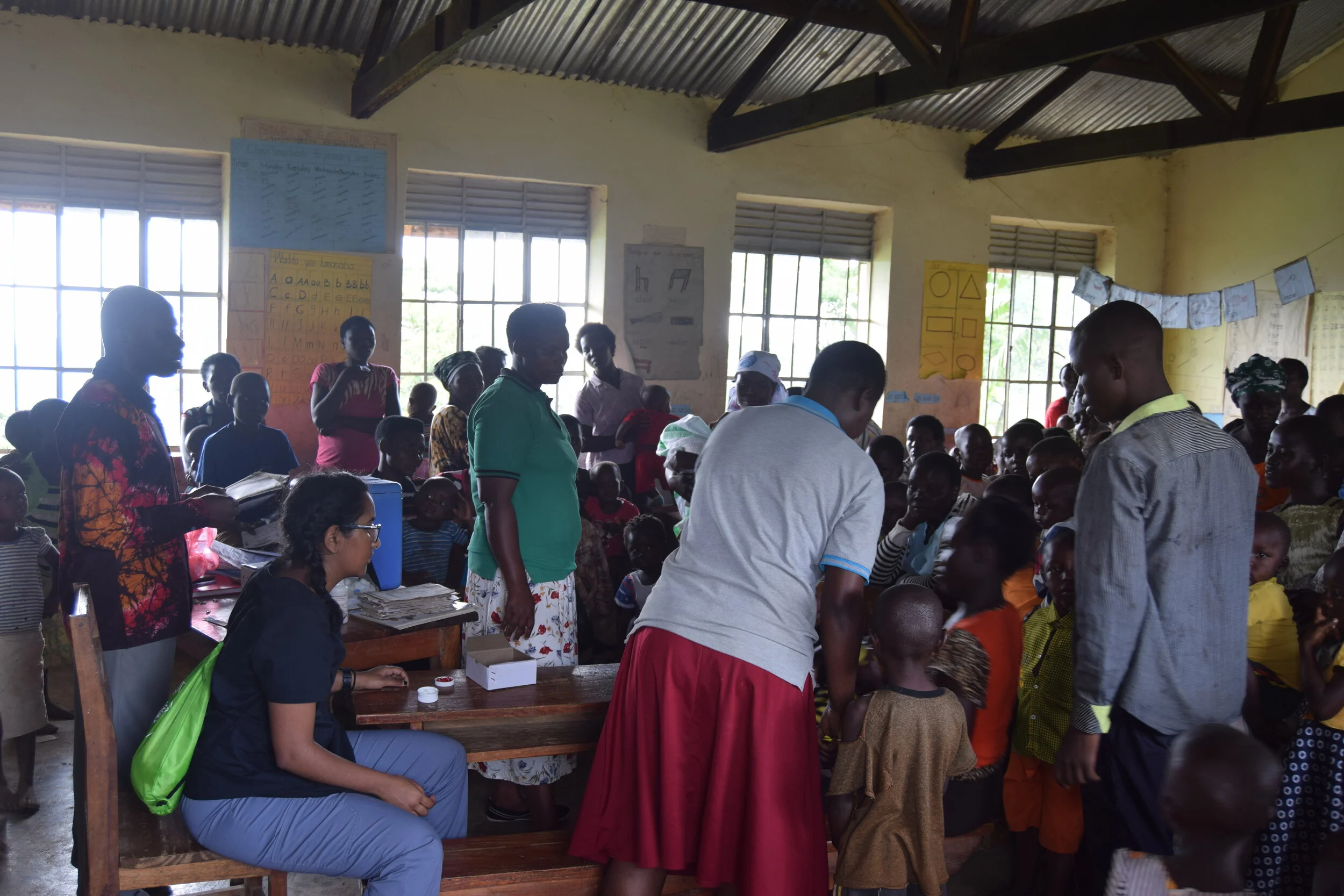
Celebrating World NTD Day
Jan 28, 2021Saturday, January 30th, marks the second annual World NTD Day, a day of awareness that addresses Neglected Tropical Diseases (NTDs) that affect many communities worldwide. This day is meant to celebrate hard-earned progress and take action to end the neglect and beat NTDs. According to WorldNTDday.org, NTDs threaten over 1 billion lives throughout poor and more rural communities worldwide. That means that nearly 1 of every 5 people on the planet are affected by NTDs, affecting their health while also making it difficult to stay in school, find a job, and be accepted by their community.
Many of FIMRC's Project Sites are located in areas where Neglected Tropical Diseases are highly prevalent, but are commonly neglected due to the lack of knowledge and the high prevalence of other more well-known diseases. Providing care for underserved communities is our goal, and at FIMRC, we strive to raise awareness around NTDs and offer education on preventative measures and symptom-care.

WHAT ARE NTDS?
Neglected Tropical Diseases are viral, parasitic, and bacterial diseases that commonly affect the world's more rural communities. These diseases include Chagas disease, schistosomiasis, ascariasis, dengue fever, hookworm infection, leprosy, and more. Because NTD signs and symptoms are very similar to those of more common conditions, they manifest gradually, and often by the time the patient becomes symptomatic, it is too late.
FIMRC RAISES AWARENESS FOR NTDS
FIMRC has a four-pronged approach to dealing with NTDs, including education, staff development, preventative care, and treatment.

Education: One of the most common reasons NTDs are prevalent is the lack of knowledge surrounding them. The more the community, both patients and health workers alike, become familiar with NTDs commonplace in a specific area, the more likely they will be to identify early-onset symptoms and retrieve the care they need. According to FIMRC Program Consultant and former Field Operations Director at Uganda, Brian Park, "FIMRC volunteers, both on-site and virtual, are required to create and present one health education lesson about a relevant health issue to patients and community members. Many volunteers have made and taught educational lessons about various NTDs present in the area, such as scabies or dengue fever." These lessons help educate both the community members and the health workers on general information regarding NTDs.
Staff Development: FIMRC clinicians must hold a certain number of Clinical Medical Education (CMEs) every month and/or year to either refresh or increase their clinical knowledge. "This is an opportunity for one of our staff doctors, PAs, or nurses to teach the other staff about various NTDs and all of the small, hard-to-spot symptoms," Brian explains. "This is also the time to educate staff on when to investigate surface symptoms deeper or when to make a referral to a higher level of care to confirm a diagnosis of a potential NTD that we may not have the resources to treat on-site." FIMRC also has professional volunteers such as Dr. Daniel Griffin from Parasites Without Borders conduct mandatory health education sessions for the staff. This provides clinical staff the opportunity to learn from experts in the field, take that knowledge along with them while treating patients, or pass it along to other providers.

Prevention Campaigns & Treatment: Thankfully, FIMRC can provide specific treatments for NTDs at our clinics, and we are happy to provide patients with treatment free-of-charge if we have the means. NTDs that we can and do treat on-site include Dracunculiasis, giardiasis, trichomoniasis, filariasis, and ascariasis. For conditions that cannot be cured outright, FIMRC provides supportive care and refers any patients who may require further investigations. "We also conduct large-scale deworming campaigns during our immunization outreaches," Brian says. "FIMRC teams will go out to hard-to-reach communities and provide periodic and preventative medications to children. One of our goals is also to start educating and treating community members for schistosomiasis, which is common in our region as well."
LEARN MORE
Since 2012, 33 countries have been able to eliminate at least one NTD. Due to this world awareness day, more people are being provided with NTD treatment than ever before. By raising awareness, educating communities, and providing care, we hope to create a world where NTDs are no longer a leading risk to so many communities.
To learn more about World NTD Day and how you can make an impact, visit worldntdday.org
Want your questions on volunteering abroad answered quicker? Book a quick call with our team!
Stay connected with news and updates!
Join our mailing list to receive the latest news and updates from our team.
Don't worry, your information will not be shared.
We hate SPAM. We will never sell your information, for any reason.

